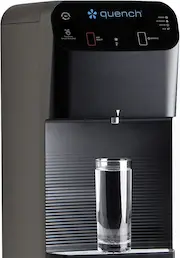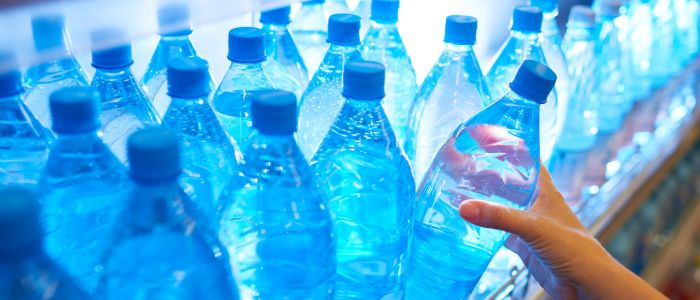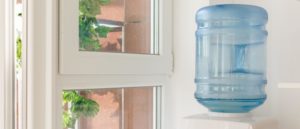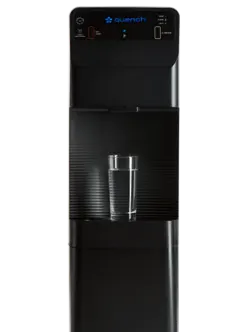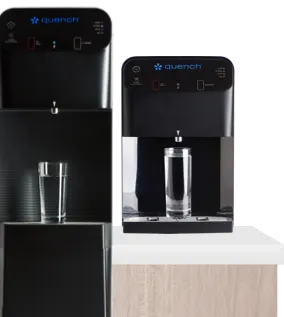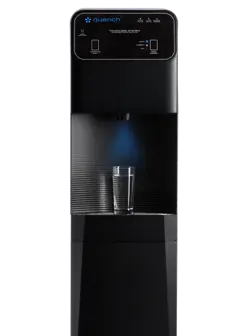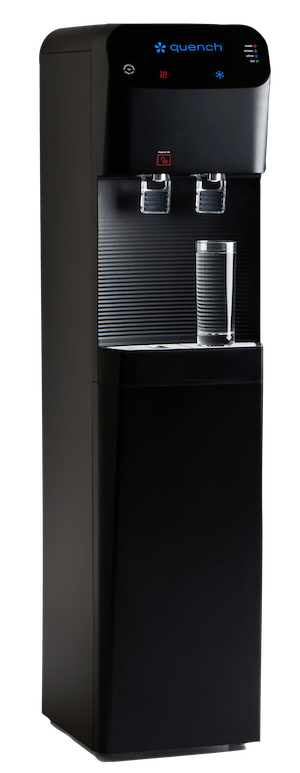Ensuring you have access to clean drinking water should always be a priority. Hydration is a key factor in reaching new levels of productivity and efficiency. Moreover, it can lead to significant improvements in your overall well-being. According to Healthline, water is essential in improving energy levels, boosting your mood, lowering your resting heart rate, and removing toxins from the kidneys.
However, not all water is created equal. Some drinking water options can contain chlorine, other chemicals, or even harmful contaminants that might not be advantageous for your health.
We’re taking a closer look into which drinking water options are chlorinated, what that means, and how to find the water system that’s the right fit for you moving forward.
Click here to test your knowledge of chlorine in drinking water.
Is There Chlorine in Your Bottled Water?
Many businesses and homes alike tend to rely on simple tap water or bottled water options, which typically include either single-use plastic water bottles or large 3- to 5-gallon jugs. Some are inclined to resort to these options because of the misconception that they’re more convenient, safe, and clean. However, this isn’t necessarily the case. Not only are these options a hassle to manage — they also might not be the purified water you’re expecting.
Do Your Drinking Water Options Have Chlorine in Them?
If you use tap water sources and you’re wondering if there’s chlorine present, the short answer is yes. While this certainly isn’t the same amount used to disinfect pools, nearly all tap water contains chlorine. This is because it’s the main disinfection method for municipal water supplies.
When it comes to bottled water options, the answer can vary. Manufacturers typically use either reverse osmosis or distillation to remove particles, such as chlorine, from the water source before bottles are filled and sealed. However, most bottled water is tap water, which means, depending on where it was sourced from directly, it could have been disinfected with chlorine.
Overall, whether you employ tap water or bottled water solutions, there’s a chance you’re drinking additives like chlorine, fluoride, or even accidental additives such as lead from your pipes.
Is Chlorinated Water Safe To Drink?
Depending on the levels of chlorine used for drinking water disinfection, chlorinated water is generally safe to drink and is unlikely to cause long-term health effects. The U.S. Environmental Protection Agency (EPA) limits the amount of chlorine in drinking water to ensure it’s safe for human consumption, and according to the CDC, chlorine levels up to 4 milligrams per liter are considered safe to drink.
However, without the right filters in place, your chlorine levels can be higher than they should be for healthy water consumption — which is significantly less safe and appealing.
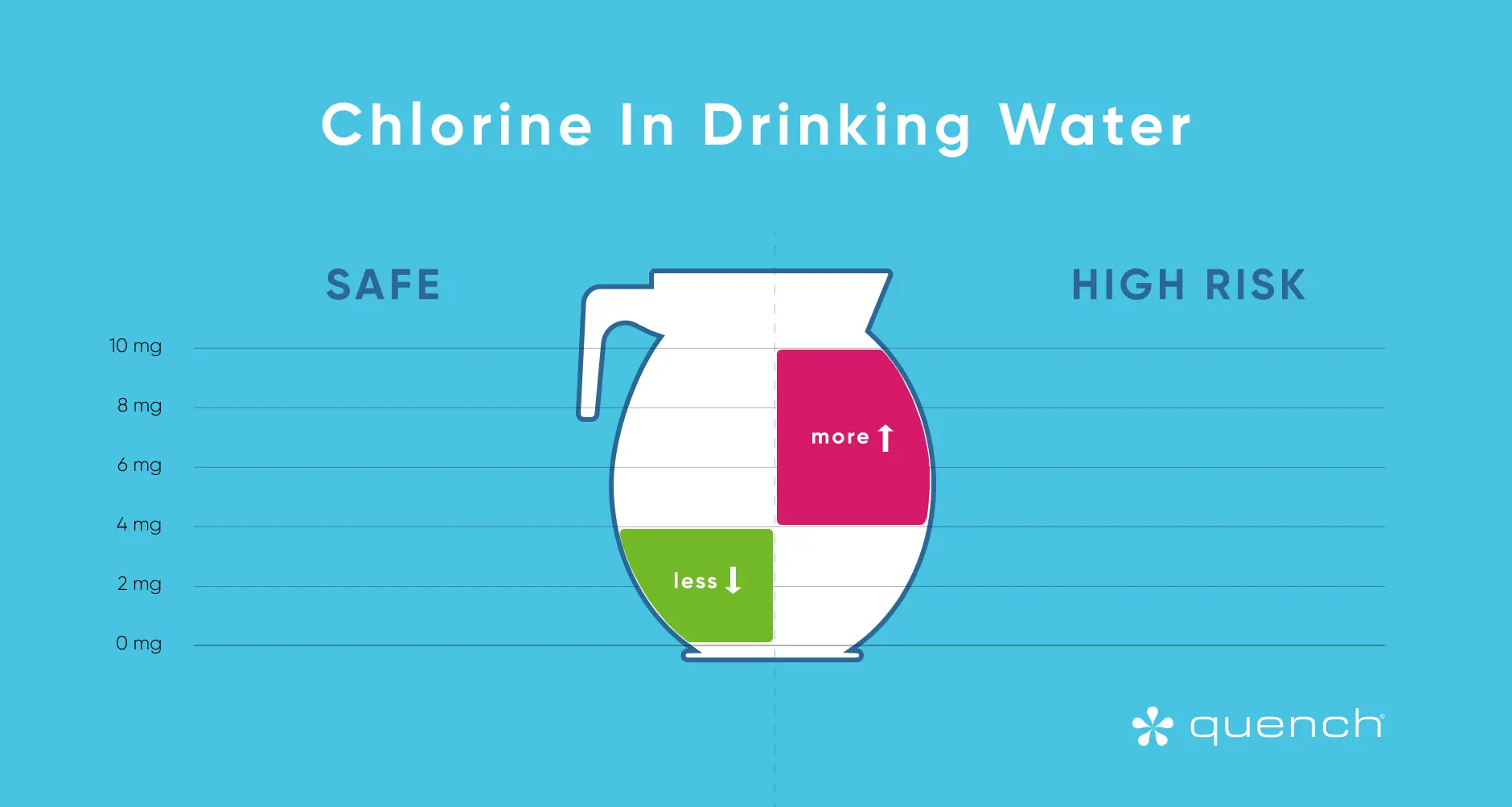
Does Chlorination Result in Harmful Compounds?
Because chlorine is a common method used to disinfect water, chlorinated water is considered safe to drink. However, this additive continues to be a subject of debate regarding its potential to produce harmful compounds. What does this mean? According to the Department of Health, when chlorine kills pathogens it can react with organic matter in water to form disinfection byproducts (DBPs) such as trihalomethanes and haloacetic acids — which are known carcinogens.
Advancements in water treatment technology aim to reduce DBP formation, but because prolonged exposure may elevate cancer risk and other health issues, concerns linger. Ultimately, while chlorination remains vital for water safety, diligent monitoring and regulation are important to minimize potential risks from harmful compound formation.
Will Chlorine Affect the Taste and Smell of a Water Supply?
If your water has an off taste or smell, chlorine might be a contributing factor. Residual chlorine used for treatment can leave behind a noticeable odor and a slight chemical or medicinal flavor. While some may find this taste off-putting, it’s generally a small price to pay for water safety. Plus, extra filtration methods can often reduce chlorine levels and enhance the overall taste of water, encouraging better hydration habits in the long run.
The Advantages of Chlorinated Water
You might be wondering why municipal treatment involves chlorine in the first place. When the right levels of chlorine are added, you can see benefits including:
- Reduced bacteria and viruses.
- Residual protection against recontamination.
- A reduction in diarrheal disease incidence.
- Eliminated contaminants.
The Disadvantages of Chlorinated Water
While the benefits of chlorinated water are seemingly clear, there are important disadvantages to consider as well. The less appealing aspects of these additives include:
- Changing the taste of your water.
- Changing the smell of your water as a result of chemical additives.
- Not being as effective in all water sources, specifically in turbid or cloudy water.
- Needing constant quality control to measure the chlorine levels.
- Relatively low protection against protozoa.
- Potential long-term effects of chlorination by-products.
Health Issues Associated With Drinking Chlorine Water
Although chlorinated water undergoes treatment to guarantee its safety for drinking, excessive consumption of water with high chlorine levels can pose health risks. Here are some of the concerns about those potential issues:
- Increasing carcinogenic exposure: The DBPs formed in water treatment may lead to an increased exposure to known carcinogens. This may elevate the risk of cancer or other long-term health problems.
- Irritating the respiratory system: Chlorine itself can irritate the respiratory system, triggering symptoms such as coughing, wheezing, and shortness of breath. This means individuals with respiratory conditions like asthma may experience worsened symptoms and should consider personal needs before consumption.
- Disrupting digestion: Drinking chlorinated water may disrupt the balance of beneficial bacteria in the gut, potentially affecting digestion and overall gut health.
- Impacting reproductive health: Research suggests a possible link between chlorinated water and adverse effects on reproductive health. While further studies are needed, some evidence indicates that chlorine byproducts may impact fertility and reproductive organs’ health.
Alternative Drinking Water Options To Consider
While chlorinated water is theoretically safe to drink at the right levels, the associated disadvantages and possible toxicity of chlorine levels that are too high make alternatives worth considering. Understanding the drinking water options available to you can help you determine what drinking water will be the most beneficial to your employees, customers, and business moving forward.
Spring Water
Spring water comes from water that flows to the surface from a clean underground water source. If you’re looking for clean, great-tasting water, this is generally a popular choice. Spring water naturally contains minerals and possibly beneficial bacteria, without chemicals like chlorine or fluoride. While this option is an effective way to avoid harmful chemicals and contaminants, it’s important to keep in mind that spring water can quickly become a pricey choice.
Mineral Water
Mineral water is another bottled water option, but unlike other types, it’s bottled at its source — which contains natural minerals and other trace elements. The U.S. Food and Drug Administration (FDA) reports there should be at least 250 parts per million total dissolved solids, and any other minerals or trace elements can’t be added later. Mineral water can have positive health benefits such as promoting bone health, lowering blood pressure, benefiting heart health, and more, per a report from Healthline. However, it’s also typically more costly than other options while introducing concerns about high sodium levels and possible microplastic content in plastic water bottles.
Distilled Water
Distilled water is a type of purified water where tap water is processed and condensed back into liquid form. As a result, any pre-existing vitamins or minerals are removed. While generally considered a healthy drinking water option, a few drawbacks exist. The lack of vitamins or minerals not only gives the water little to no taste but has also been attributed to poor dental health. Moreover, distilled water absorbs other elements very easily, which can lead to high acidity and possible health risks as a result.
Water Filtration Systems
Advanced solutions in water filtration are making bottleless water coolers an increasingly popular choice across workplaces and households alike. With a water filter in place, you can remove harmful contaminants while eliminating the possibility of unsafe levels of chlorine or fluoride in your drinking water. State-of-the-art technology from water service providers like Quench® removes sediments, contaminants, and bad tastes while adding back minerals and electrolytes to create the best alkaline water for optimum hydration.
Choosing a water filtration system over bottled water options offers several distinct advantages, including:
- Cost-effectiveness: Save money and time compared to recurring bottled water delivery services.
- Environmental sustainability: Reduce plastic waste and environmental harm associated with single-use plastic bottles.
- Healthier water: Ensure clean water that’s free from contaminants and microplastics, promoting better health and peace of mind.
- Convenience and accessibility: Enjoy an endless supply of clean water that’s readily available.
- Customization and versatility: Tailor drinking water solutions to your specific needs, preferences, and local water quality concerns.
Finding the Water That’s the Right Fit for You
With all of the distinct types of water available to you, it can be difficult to find the option that’s right for your needs. However, there are a few things to keep in mind that can make your decision easier.
When it comes to bottled water companies, you’re not always sure what you’ll get. There’s no surefire way to regulate the types and levels of additives used. It doesn’t help that there are inevitable variations depending on your local water quality or the water bottle brand you employ.
Water bottles, whether single-use or large jugs, are likely not your most cost-efficient option and can have detrimental effects on the environment. These repercussions include plastic waste, CO2 emissions, large oil use, water waste, and the possibility of microplastics. You can see the true cost of water bottles by checking out our total cost calculator.
With a bottleless water cooler, you can have certainty on how your water is being treated while saving significantly along the way. This filtered water is treated straight from your water line, giving you access to an endless supply of clean, great-tasting water — without having to worry about contaminants, chemicals, or any additives that run the risk of affecting anyone’s long-term health.
Procure Clean Drinking Water With Quench
It might be time for you to ditch bottled water products for a more advanced drinking water solution. If you’re ready to elevate your water supply, you can procure your bottleless water cooler with Quench. Explore a wide array of bottleless water dispensers that can give you access to top-tier filtered water whenever you need it. You can keep costs down while ensuring you’re happy, healthy, and hydrated along the way.
Ready to bring your water quality to the next level? Try our product finder to discover the bottleless water dispenser that’s the right match for your needs, or get a free estimate to get started.
